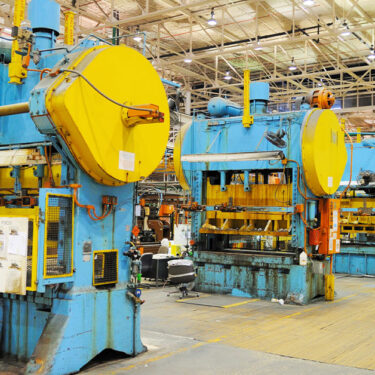More than 70 million candy products that contain rolling liquid dispensers were recently recalled due to the risk of choking. The two products separately recalled — 145,800 Cocco Candy Rolling Candy dispensers and 70 million of the Candy Dynamics Slime Licker Sour Rolling Liquid Candy — contain a roller ball mechanism that dispenses liquid. According to the U.S. Consumer Product Safety Commission, this ball can become detached and create a choking hazard for children.
Featured Solutions
In both recalls, consumers are asked to dispose of the products and contact the companies for a refund. Any known safety hazard in a consumable item geared toward children is an urgent matter for all parties involved, especially as Halloween approaches, said Steve Bartell, Senior Broker, Casualty, Burns & Wilcox Brokerage, Chicago, Illinois.

A child could have that thing in their pocket next Halloween. The risk of bodily injury with the choking hazard is something that could potentially impact the companies the most down the road.
“It is possible that not everyone will catch wind of this product recall, and these products could be out there for a fairly long time,” Bartell said. “A child could have that thing in their pocket next Halloween. The risk of bodily injury with the choking hazard is something that could potentially impact the companies the most down the road.”
The candy manufacturers could face multiple expenses as they respond to the recall, including product redesign, loss of income and legal defense for any consumer lawsuits. Product Recall Insurance and Products Liability Insurance could help cover these costs, said Anthony Kobets, Senior Broker Commercial Insurance, Burns & Wilcox, Kansas City, Kansas.
“Any time you are dealing with minors and anything that is digestible, a recall can be even more serious,” Kobets said. “Especially with kids in mind, it is very important that you have an insurance policy that responds accordingly and protects your operations.”

Any time you are dealing with minors and anything that is digestible, a recall can be even more serious. Especially with kids in mind, it is very important that you have an insurance policy that responds accordingly and protects your operations.
Children’s products bring heightened liability concerns
Just before Halloween last year, concerns over undeclared allergens led to an FDA recall of candy corn made by Arcade Snacks, USA Today reported. This year, candy recalls have included Russel Stover peanut butter cups recalled in the U.S. in March over potential undeclared pecans, and various chocolates by Sanders Candy sold in the U.S. and Canada that could contain pieces of cleaning brush bristles, Food Safety News reported in January.
According to Kobets, common reasons for candy recalls include design flaws, undisclosed allergens and manufacturing errors. “The biggest thing is the hidden design flaws or defects from the factory that need to be addressed,” he said, noting that a lack of warning labels can also trigger a recall. “A lot of times the instructions are not clear, or there might be an allergen that was not disclosed in the ingredient list. Consumers could have an allergic reaction if they are not aware of the ingredients.”
When a consumer is harmed by a food product, the manufacturer’s Products Liability Insurance can help pay for medical expenses, legal defense and possible settlements or court judgments, among other costs. This is one of the greatest risks for any company that sells consumable products, Bartell said. “If a child chokes, that could result in multi-million-dollars worth of lawsuits from injuring someone,” he said, adding that this can make it more difficult for manufacturers that sell children’s products to find insurance. “If you mention children’s products, the marketplace shrinks.”
A company’s Product Recall Insurance can cover more direct recall expenses, such as customer notification, shipping products back to the warehouse if needed, loss of business income, and brand rehabilitation. In the case of the current liquid-roller candy recall, “the product liability is potentially a lot more damaging for them” than the recall-related expenses because of the choking risk, but both policies are important, Bartell said.
“Products Liability Insurance goes hand in hand with the recall policies,” Kobets said. “If you are manufacturing candy, you are going to have potential liability associated with that. It is important to have both policies to properly defend you.”

If you are manufacturing candy, you are going to have potential liability associated with that. It is important to have both [Products Liability Insurance and Product Recall Insurance] to properly defend you
For example, a Product Recall Insurance policy’s brand rehabilitation coverage can help companies recover from negative publicity or rebrand with crisis consultation. “The biggest coverage [with Product Recall Insurance], in my opinion, is the adverse publicity, which is essentially public relations to help deal with the issues associated with the recall and keep your brand from being tarnished,” Kobets said. “It is very important to be able to control the story and how it is shared.”
Banned ingredients could trigger recalls, lawsuits
The number of units impacted by food safety recalls in the U.S. grew by 700.6% between 2021 and 2022, with 52.1 million units recalled in 2021 compared to 416.9 million units in 2022, Food Safety News reported in March. This included the 14.89 million units of infant formula recalled over bacteria concerns last year, which led to a nationwide formula shortage, the outlet reported. According to CTV News, that recall and subsequent plant shutdowns also led to a formula shortage in Canada, where the Canadian Food Inspection Agency oversees about 164 food recalls per year.
When a company must recall a product, it will often face weeks or months of lost revenue from that item, particularly if the item needs to be redesigned, Bartell noted. “It is usually going to take time for them and there is going to be a loss of profit, which could be covered by a Product Recall Insurance policy,” he said. “If you lose the ability to sell your product for that two or three months until you figure out the cause of the issue, your policy could respond to that lost profit.”
Choking hazards in candy products have led to regulatory action in the past, Kobets said, pointing to Kinder-brand chocolate “surprise” eggs that were recalled in the U.S. in 1997 and eventually banned over the risk of kids accidentally ingesting the plastic tube inside the chocolate egg that contains a toy. “It was a choking hazard,” he said.
Another emerging risk for food manufacturers is the potential for new state or federal regulations over certain ingredients. For example, California lawmakers recently approved a ban on the manufacture, sale and distribution of four additives that have been linked to cancer risk, including an ingredient that is used in Skittles, the Washington Post reported Oct. 11. The law would not go into effect until 2027, Kobets said, and potential insurance coverage for this type of gradual phase-out would depend on individual policy wording.
“It may not be an actual recall case initially, but essentially they are banning various chemicals or ingredients that are known to cause cancer,” he said. “There could be multiple insured events that are included in these policies.”
Artificial sweeteners present another growing concern for food manufacturers after a World Health Organization study linked aspartame to possible cancer risk, Bartell pointed out. While the FDA stated in July that it disagrees with the International Agency for Research on Cancer’s conclusions about aspartame, the agency could decide to regulate certain artificial sweeteners or recall products containing them “at any single point in time,” he said.
“A lot of these candies are using artificial sweeteners,” Bartell said. “If you are a candy manufacturer using any of these ingredients, you could be opening up yourself for potential lawsuits there. That is a new added dynamic to it.”
Vendor quality control, insurance considerations
When a company is faced with a recall, it will need to take quick action to respond. This may require extra working hours for staff as the company deals with crisis communications, which can also be covered by Product Recall Insurance. “There are usually expenses associated with responding to consumers and having individuals to talk them through it,” Kobets said.

[Companies] should have a plan for how they will handle a recall and get the word out so that they do not incur product liability losses.
Other coverages may include pre-recall expenses, extortion, and more. “It ultimately comes down to the coverages you are needing,” he said, explaining that policies can be designed to specifically cater to the company’s product. “These policies themselves can have very broad coverages. When we write the insurance, we go through their current product recall plans and how they would handle a recall, who manufactures the products and who is involved. It is very detailed with regard to the chain of events.”
After all, Kobets said, “any product can fail — not just consumables.” Companies should take care to monitor the quality of materials coming from vendors and ensure that their vendors also carry insurance. “You need to make sure everyone in the manufacturing process is insured,” he said. “It is important to look at your overall program and determine what exposures you have, and what is the worst-case scenario. Having a risk manager and a properly vetted insurance broker is very important. You want to have someone who knows what they are doing.”
To be prepared for a potential recall, food manufacturers should regularly review their risk management and quality control procedures, Bartell added. “It is pretty important for every client to make sure that they have a plan of attack in the event they run into a recall,” he said. “They should have a plan for how they will handle a recall and get the word out so that they do not incur product liability losses.”





